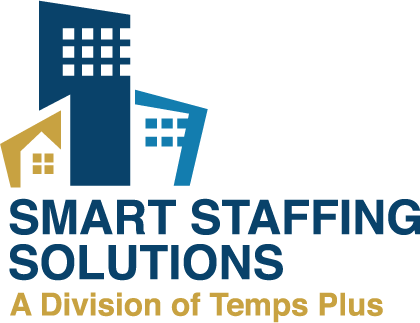As the work landscape becomes increasingly competitive, working smarter, not harder, can keep you ahead of the game. Working smarter means being more efficient, productive, and strategic in how you approach your work.
There are several qualities and priorities that employees that work smarter have.
1. All-in on technology
Successful employees will rely on technology whenever they can. Employers are relying on this too, with 50% of employers in a recent survey saying they expect employees to have skills with technology. However, this number is expected to grow to 75% by 2030. What does embracing technology do?
- Helps you stay more connected. More efficient communication means less wasted time, and
- Increases knowledge because of the easy access to information and learning.
- Offers opportunities like working remotely, which usually means a better work-life balance.
- Work that used to take a long time and was labor intensive is easier with the help of technology.
At the same time, smart workers also know when to step away from their tech. If you want to focus on a specific task, turning off distractions can help you focus and work smarter.
2. Work Life Balance
By maintaining a healthy work-life balance, you can reduce stress and improve your mental and physical health, leading to more productivity and success in your work. If you are able to prioritize your well-being by taking time off work to recharge, pursuing hobbies and interests and spending quality time with family and friends, you will be more engaged when you are at work. Employees who work long hours and neglect their personal lives are more likely to experience burnout, stress, and poor mental health..
Employers are also supporting this initiative and understand that mental health is important. A healthy work-life balance can help your mental state. Employers are releasing guides like the Surgeon General’s Workplace Mental Health & Wellbeing guide that said, “Workers manage daily stress that affects their health and organizational performance. These stressors arise from heavy workloads, long commutes, unpredictable schedules, limited autonomy, long work hours, multiple jobs, low wages, and a variety of other work-related challenges on top of responsibilities outside of the workplace.” Employers are a big part of maintaining work life balance and can help facilitate a healthy environment.
3. Continuous Learning
A smart worker understands that there is always something new to learn. It is important to take advantage of any programs your workplace offers to advance your skills. Sometimes, employers will also fund outside training programs that can increase your work performance. There are many ways to continue learning, which, in turn, helps you work smarter.
- Formal training programs in and outside of the workplace.
- Certification programs in some industries.
- Pursue an advanced degree in your field– and some employees will even help pay!
- Finding a mentor to shadow at work.
- Take online courses.
Employers who support continuous learning and embrace that it helps employees work harder have happier employees. In a LinkedIn survey over 94% of employees said they would be more likely to stay at a company that invests in their education. Not only does continued learning help increase productivity, it can also help you gain transferable skills that can benefit you later in your career.
4. Automate
While no one wants their job to go away because of automation, smart workers can accept and embrace automation that can help them at work. In a 2021 study, 81% of workers surveyed said they believe automation can lead to more meaningful work. You can use automation for everything from managing payroll and marketing campaigns to data analysis and customer service. While technology can’t replace the human touch employees bring to the workplace, they can help you work smarter.
The Bottom Line
Working smarter is essential for success in today’s competitive work environment. By prioritizing tasks, managing your time well, leveraging technology, continuously learning, and prioritizing work-life balance, you can be more successful at work and in other aspects of your life.

